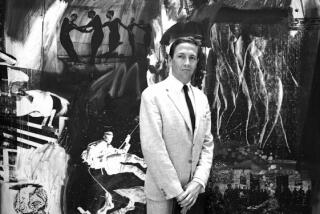Movie review: The glorious ‘Grand Illusion’
Jean Renoir’s 1937”Grand Illusion,” one of the most admired — and one of the most feared — films ever made, returns to theatrical screens in a fine digital restoration taken from the original camera negative just in time to celebrate its 75th anniversary.
The first foreign language movie ever nominated for the best picture Oscar, this most celebrated of antiwar films had a host of admirers, including Orson Welles, who once said, “If I had only one film in the world to save, it would be ‘Grand Illusion.’”
Definitely not among the enthusiasts was Joseph Goebbels, the Reich Minister of Propaganda in Nazi Germany, who called the film “Cinema Enemy No. 1.” Backing up his words with action, Goebbels had numerous prints of the film seized when the Germans occupied France during World War II. That original camera negative traveled back and forth across Europe and was lost for decades before being rediscovered in the 1990s at the Cinémathèque of Toulouse.
Though it is set during World War I and inspired by stories Renoir heard from fellow veterans, calling “Grand Illusion” an antiwar film runs the risk of making it sound strident and dogmatic. In fact, this film is a model of simplicity and grace, with emotional effects that move you when you least expect it, the kind of great film that only a master can pull off. Especially when that master is Jean Renoir.
The son of painter Auguste Renoir, Jean Renoir had a gift for easy access to humanity, for films that celebrated the human spirit without resorting to sentimentality. In fact, this film is most accurately looked at as a paean to shared humanity across several different divides.
Definitely an ensemble film, with five characters sharing the focus of attention, for American audiences the two who are most familiar are top-billed Jean Gabin, the great French star of his age, and last-minute addition Erich von Stroheim. When changes in his fortunes brought Von Stroheim to France from Hollywood, Renoir seized the chance, combining two roles that were originally going to be given to two different actors and offering them both to him.
Von Stroheim’s Capt. Von Rauffenstein is introduced in 1916 as a German air ace who has shot down a French plane carrying Capt. De Boeldieu (Pierre Fresnay) and Lt. Maréchal (Gabin).
Because they are fellow officers, Von Rauffenstein invites them to lunch, where he noticeably has more in common with fellow aristocrat De Boeldieu than man-of-the-people Gabin. The two Frenchmen are sent to a prisoner-of-war camp, where they share a room with several countrymen, including the actor Cartier (Julien Carette), an incorrigible jokester, and Rosenthal (Marcel Dalio), the scion of a wealthy Jewish banking family, whose generosity with his food parcels from home keeps everyone well-fed.
Transferred some time later to another camp, the Frenchmen are surprised to find that the commandant is none other than Von Rauffenstein, seriously wounded in a plane crash and now in charge of a facility that he insists is escape-proof, a sentiment the French feel duty bound to prove wrong.
Though escape attempts are the film’s skeleton, what gives it its strength are its character dynamics. Renoir is interested in what draws men together, whether it be the class consciousness that unites German Von Rauffenstein and the French De Boeldieu, or other, deeper bonds.
The director, who co-wrote the film with Charles Spaak, excelled at small moments whose emotional impact on-screen is hard to convey in words. The silence that envelopes the POWs when a delicate-featured fellow prisoner dresses up in drag in preparation for a theatrical show is memorable way beyond words.
More to Read
The biggest entertainment stories
Get our big stories about Hollywood, film, television, music, arts, culture and more right in your inbox as soon as they publish.
You may occasionally receive promotional content from the Los Angeles Times.











